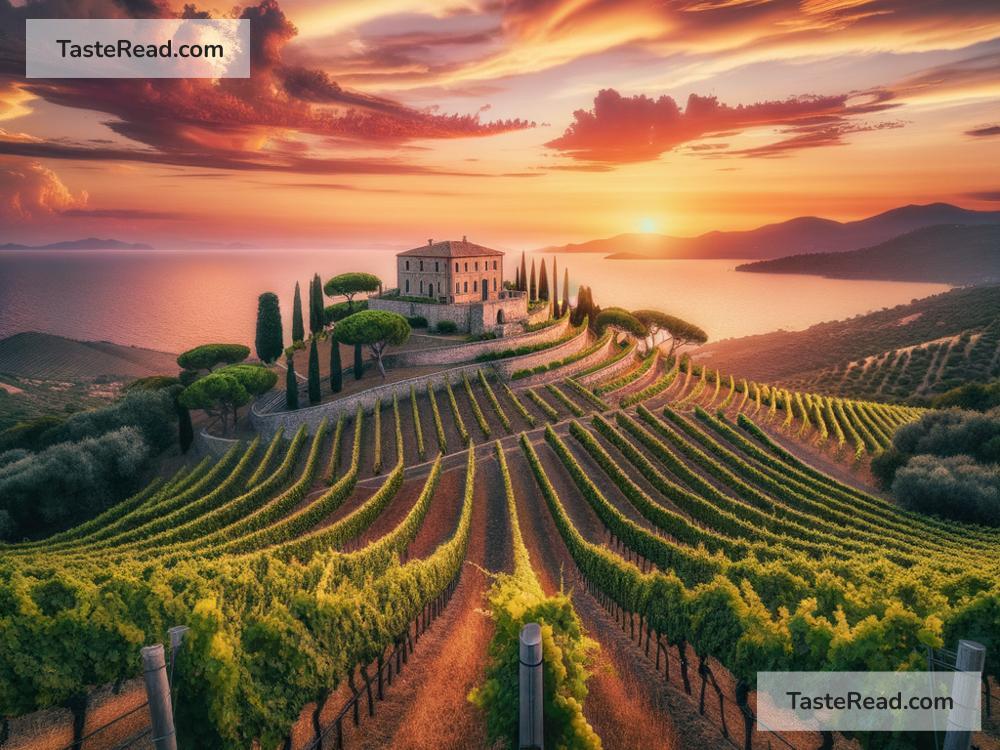Tracing the Journey of Mediterranean Wines Across Borders
The Mediterranean – a region known for its stunning landscapes, vibrant culture, and, importantly, its exquisite wines. This part of the world has been a significant player in the wine industry for thousands of years. The journey of Mediterranean wines is a tale of tradition, innovation, and exploration that has seen these delightful beverages cross borders and charm wine lovers around the globe.
The Roots of Mediterranean Wine
The story of Mediterranean wine begins in ancient times. Historical records suggest that wine production in this region can be traced back to 6,000 BC. Countries like Greece, Italy, and Lebanon are considered among the oldest wine-producing regions in the world. These ancient civilizations not only enjoyed wine but also considered it a crucial part of their culture and religion. They developed early methods of winemaking, which have been passed down and refined over centuries.
The Expansion Beyond Borders
The expansion of Mediterranean wines beyond their original borders started with ancient trade routes. Phoenician traders took wines from the Eastern Mediterranean to new markets. The Greeks and later the Romans spread their love for wine throughout Europe, laying the foundation for the wine cultures in France, Spain, and beyond. This period marked the beginning of wine’s journey across the world, embedding it into different cultures and expanding its reach to new consumers.
The Renaissance Era: A Turning Point
The Renaissance period was a turning point in the journey of Mediterranean wines. As European explorers set off to discover new lands, they also carried their wine-making knowledge with them. This era saw the introduction of Mediterranean grape varieties to new regions, such as the Americas and South Africa, which would later become significant wine producers themselves. The movement of people and goods during this period facilitated a global exchange of winemaking techniques, varieties, and traditions.
The Modern Era: Innovations and Identity
In the modern era, Mediterranean wines have undergone significant transformation thanks to innovations in viticulture and winemaking. Improved techniques have helped winemakers better express the unique characteristics of their terroirs, leading to wines that are more refined and complex. Today, countries like France, Italy, and Spain are not just among the largest wine producers; they are also leaders in wine exports, sharing their cherished wines with the rest of the world.
Despite the competition from new wine regions, Mediterranean wines have maintained their allure, thanks in part to their deep historical roots and the diversity of wine styles they offer. From the full-bodied reds of Italy to the crisp whites of Greece and the sparkling cava of Spain, the Mediterranean has something for every palate.
The Role of Culture and Tourism
Culture and tourism have played significant roles in spreading the fame of Mediterranean wines. Wine tourism, in particular, has become a popular way for wine lovers to explore the rich history and tradition of Mediterranean wine. Visiting vineyards, tasting sessions, and wine festivals immerse tourists in the local culture, creating lasting connections between consumers and the regions that produce their favorite wines.
Challenges and the Path Forward
Despite its storied history and global popularity, the Mediterranean wine industry faces challenges. Climate change poses a significant threat to traditional wine-growing regions, potentially altering the taste and character of beloved wines. Moreover, competition from emerging wine regions requires Mediterranean winemakers to continually innovate and adapt to changing consumer tastes.
To overcome these challenges, many Mediterranean wineries are investing in sustainable practices, experimenting with resilient grape varieties, and focusing on quality over quantity. By embracing the principles of sustainability, they aim to preserve their wine heritage for future generations.
Conclusion
The journey of Mediterranean wines from ancient times to our tables is a testament to their enduring appeal. As these wines have crossed borders and bridged cultures, they have also evolved, capturing the essence of their origins while embracing new influences. For wine enthusiasts, the story of Mediterranean wines is not just about the drink itself but about the history, culture, and people behind it. As we savor a glass of Mediterranean wine, we partake in a rich tradition that has been centuries in the making and is continuously unfolding.


